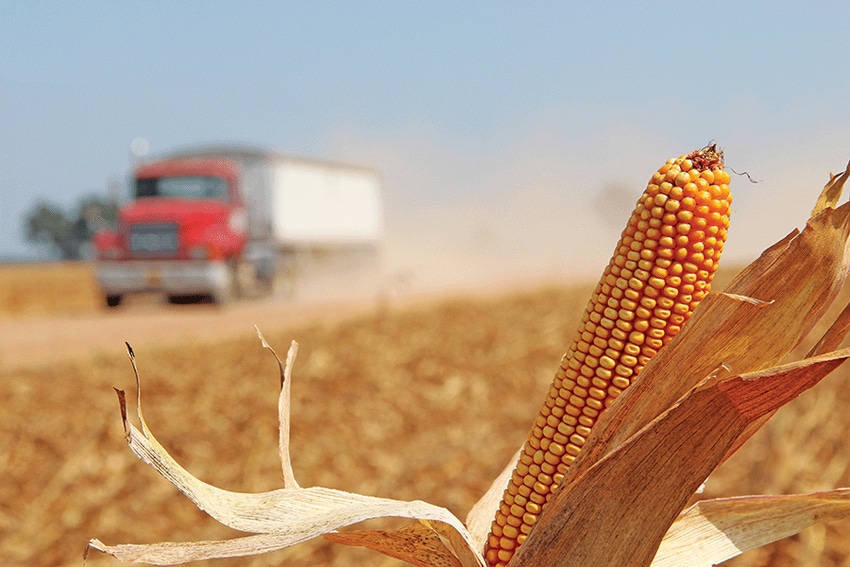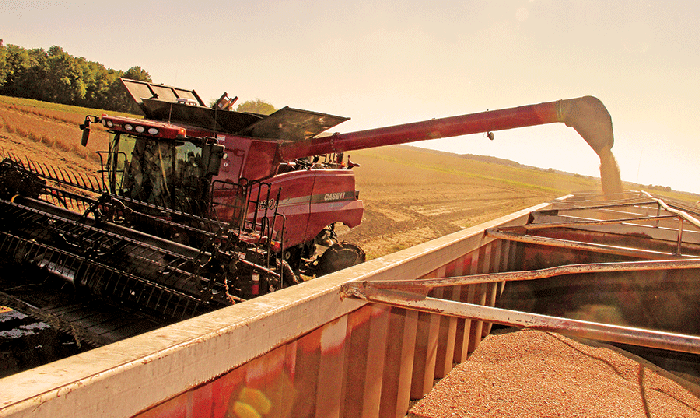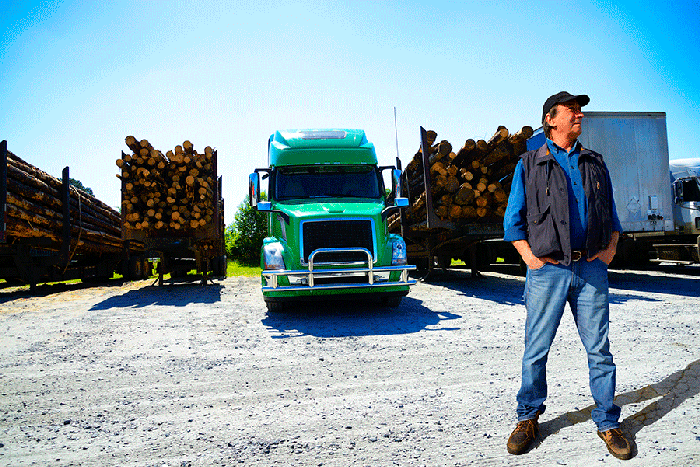
Mississippi farmers who use state-issued harvest permits that allow special weight limits for agricultural products are reminded that the permits require compliance with certain regulations, and that if any out-of-state trucks will be used they must meet Mississippi requirements.
Willie Huff, director of the Mississippi Department of Transportation Office of Enforcement notes that the permits may be issued to vehicle owners/operators for hauling specific materials, including sand, gravel, fill dirt, and agricultural products — products produced on the farm, or farm products being transported from the farm to markets or processing points (cottonseed, regardless of origin is considered an agricultural product), or unprocessed forestry products being hauled directly from the forest (products being hauled from a holding yard will be treated as directly from the forest).
Loads authorized for harvest permits must not exceed 84,000 pounds, he pointed out at the annual joint meeting of the Delta Council Ginning and Cotton Quality Improvement Committee and the Southern Cotton Ginners Association. The permits are not valid on interstate highways, nor are they valid on low-weight roads.
“Vehicles in excess of 80,000 pounds will be penalized $0.05 per pound for every pound over 80,000 and $0.15 per pound for every pound over 100,000,” Huff notes. The permits may be used for vehicles restricted from hauling maximum loads due to axle number or spacing. Harvest permits apply to covered products at 4,000 lbs. above the authorized gross weight limit. Loads in excess of 4,000 pounds over that authorized limit will be penalized $0.05 per pound for every pound over 4,000 and $0.15 for every pound over 16,000 lbs.”
There have been changes to the harvest permit rules, he points out. “An agricultural products load can weigh 40,000 lbs. on a tandem axle. There is now a 10 percent tolerance above that (it was previously 5 percent), which gives you 44,000 lbs. on one set of tandems. But the maximum load remains 84,000 lbs. Cotton modules are allowed 60,000 lbs. regardless of axle, with a 4,000 lb. tolerance, for a total 64,000 lbs.”
Anyone using out-of-state trucks for any portion of their business will need to have an apportioned license plate from the state they’re from, Huff says. “Otherwise, they must buy a three-day trip permit from the state of Mississippi, must also buy fuel in Mississippi and retain the receipts, and have valid CDL insurance. If the truck is in violation of any of these requirements and we stop it, it’s going to kept on the side of the road until things get straightened out.
“If the truck is overweight, the driver will have to come up with cash or a credit card to pay so he can continue on his way. It’s really not worth the time or cost for your products to be sitting on the side of the road because a truck is out of compliance. So, if you’re going to use out-of-state truckers, please make sure they’ve done whatever they need to do to be legal in Mississippi.”
Loggers have had some leeway in using farm tags, but the Federal Motor Carrier Safety Administration could change that.
Many trucking operations now require electronic logging devices (ELDs), but there is an exception for agriculture, Huff says. “However, at present, the U.S. Department of Transportation Federal Motor Carrier Safety Administration doesn’t characterize timber as an agricultural product. There are questions as to whether FMCSA is going to require log trucks to have ELDs and CLD if they’re using a farm tag.
“Loggers have had some leeway in using farm tags and saying that they don’t have to have CDLs, logbooks, etc. But because they haul wood to a holding yard and sell the wood there or get paid for hauling somebody else’s wood, that’s considered commerce, the FMCSA maintains. So, it’s probably coming down the pike that loggers will be required to meet those requirements. This isn’t set in stone yet, but if you do logging work, you need to be aware of this discussion.”
Even farmers who have farm tags on their trucks “shouldn’t be hauling for hire,” Huff says. “If you’re getting paid to haul grain or farm products to a terminal for someone else, you’re considered to be in commerce, and that requires a CDL and a different tag. So, please be aware of this.”
Some points to be aware of in applying for a harvest permit, Huff says: Approval of all applications for permits will be determined by MDOT. Applications not approved will be returned to the applicant for correction and re-submission. Harvest permits will notbe issued to owners with outstanding vehicle fees or penalties; owners with fees or penalties under appeal; or owners with penalties or fees on a payment plan.
After MDOT approves an application, the applicant will receive a harvest permit authorization letter, which must be kept in the vehicle at all times. The harvest permit is valid, as of the issue date on the letter of authorization, and is good for one year from that date. The authorization letter is non-transferable. A harvest permit application form can be found on the website www.Gomdot.com
The application fee is $25.
About the Author(s)
You May Also Like




